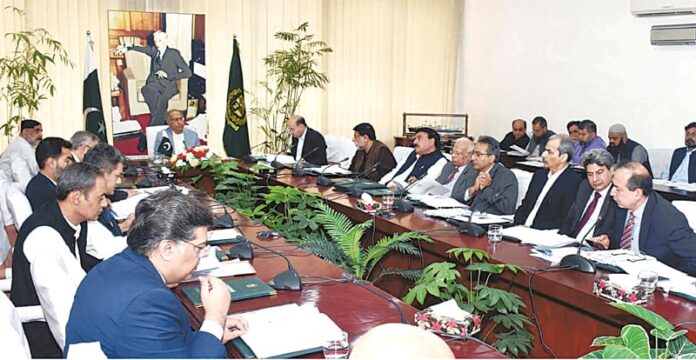ISLAMABAD: The Economic Coordination Committee (ECC) on Wednesday approved Electric Vehicle (EV) policy for 2-3 wheelers and heavy commercial vehicles.
According to sources, the policy was proposed by the Ministry of Industries & Production after consultation with various stakeholders from the Engineering Development Board (EDB), Ministry of Science and Technology, Ministry of Climate Change and others.
Although the EV Policy 2019, presented by the MoCC, was earlier approved by the cabinet, the policy could not be implemented due to objections raised by the MoIP, EDB and other stakeholders.
After a series of meetings among concerned ministries, it was decided that the EV policy would be revised. However, during a meeting in April, it was decided that in the first phase, the EV policy would be framed only for two-wheelers (motorcycles) and three-wheelers (rickshaws), as this would satisfy the concerns of both the MoCC and the MoIP.
“Shifting to e-motorcycles is easier as can be witnessed in middle-class markets like China,” said an official of the climate change ministry. “Besides, Pakistan has a very large number of motorcycles, motorcycle rickshaws and auto rickshaws that emit a significant amount of smoke.”
The EV electric four-wheelers (cars) would be taken at a later stage, he maintained.
The MoCC, which is unhappy over the rollback of its EV policy, had stressed a total of one per cent duty on imports of e-motorcycles and e-rickshaws’ assembling parts. The ministry was of the view that low duties would encourage the influx of e-bikes in the market.
But the MoIP had countered the suggestion that it would discourage local production of parts.
Currently, the import duty on two-wheelers and three-wheelers’ parts was 46pc for those manufactured in the country and 15pc on imported parts.
According to MoIP officials, Pakistan has a strong production base as almost all 2 and 3 wheelers’ parts are manufactured locally. The EV policy should encourage the existing makers to shift from oil to battery-based vehicles, they added.
Earlier, the tussle between the Industries and Production Division and the MoCC had landed the EV policy in the cabinet, which handed over the role of formulating the national EV policy through consensus.





Dear Gulam Abbas,
Hope you are fine, we would like to request you for the assistance on the subject cited above as we find your personal keen interest and observations in the matter.
We find a report published by you on google in June 2020. We need to know any updates in this regard.
Hope for an early and positive response from your end, thanking you, we remain.
Mian Abdul Majid
+923092619733